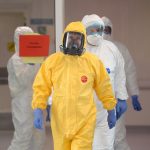INTERVIEW
Date: 1 April 2020
Interview: Russia’s phony fight with pandemic
For a long time since the outbreak of the coronavirus epidemic in China, Russia has not publicly recognised this problem as serious. Thus, it took the path of presenting itself as a state which is stronger and better organized than the Western countries, which had started the fight against the developing threat much earlier. Russia launched an aggressive information campaign against the EU countries, including Poland, offering Italy its help at the same time. The director of the Eurasia programme at the Warsaw Institute, an expert on Eastern affairs, analyst and former journalist Grzegorz Kuczyński, in the interview about Russian disinformation during the pandemic and its interpretation.
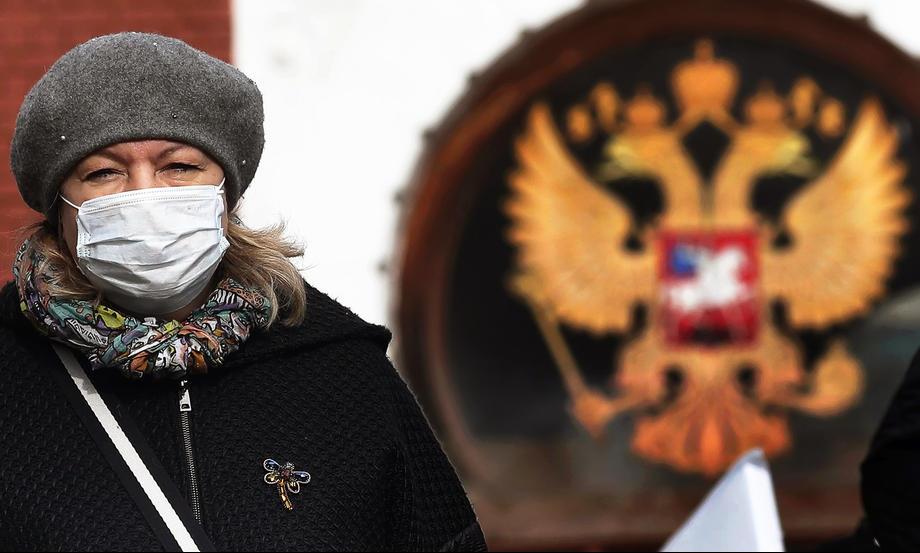
This article was originally published in The Warsaw Institute Review on 01.04.2020.
Jarosław Walkiewicz, The Warsaw Institute Review:
Let us remind the readers what was the Russian reaction to the SARS-CoV-2 epidemic from the beginning of the outbreak in China until today. What preventive measures were taken?
Grzegorz Kuczyński, Warsaw Institute: It should be remembered that the coronavirus problem arose when the Kremlin began to implement a key political operation aimed at strengthening the regime, i.e. increasing the president’s powers and giving Putin, de facto, a lifelong reign. This is what the so-called constitutional reform, announced surprisingly in mid-January and then implemented at a truly rapid pace (firstly manifested by the replacement of the government), comes down to. With regard to Putin’s political plans – an important element of which was to achieve the nation’s approval of the changes in the constitution through a national vote in April – the Russian authorities and the national media did not pay as much attention to the coronavirus as others in the world. However, when the problem arose, the Russian authorities for a very long time have assured the Russians that they were not threatened with a repetition from China or Italy. On January 31, the first two cases of coronavirus in Russia were reported. On the same day, Russia closed the border with China, which is more than 4 thousand km long. The Russian authorities initially focused on isolating the country from the main centres of the epidemic. Then, connections to Iran and European countries were blocked, with Italy ahead. Finally, it was decided to close the borders to all foreigners. In the following days, the number of infected people was growing, but given the size of the country and its population, it was still surprisingly low. Only a few weeks later it turned out that the number of infected people was very understated – because the tests used were much less sensitive than those used in Europe. As the authorities were assuring the citizens that there was no real danger, the measures to limit the spread of the virus have been quite soft for a long time. It was limited to recommending the elderly to stay at home. It was only in mid-March that bans on gatherings were introduced and museums, theatres and schools were closed. A state of emergency was introduced in all regions. Schools and universities throughout the country shifted to distance learning, all sporting and other mass events were cancelled. The authorities changed their coronavirus policy only on 24-25 March. It seems that the Mayor of Moscow Sergei Sobyanin – who became the face of the fight against the epidemic not only in the capital city –convinced Putin that radical actions should be taken because the actual scale of the epidemic is much greater than it seems. Therefore, Putin, wearing a protective suit visited an isolation hospital, and then he delivered a speech in which he announced radical restrictions to prevent the epidemic, as well as financial aid for the victims of the epidemic (the first package of almost 4 billion dollars was proposed by Prime Minister Mishustin already on March 16). However, he did not announce a national quarantine as many countries around the world have, but only a week off. There is a fear that this will not stop the Russians from contacting each other and spending their free time on the streets, in parks etc. On March 30, the state borders were also finally closed to foreigners. Considering the increase in the number of infected people in the last days of March, such actions – clearly delayed – may not be enough.
Why Russia is not limiting its army exercises, public events and sports competitions, and, finally, preparations for the victory parade on May 9, which also seems to be in question, due to the development of a global pandemic. What is the purpose of this “conspiracy of silence” concerning the coronavirus?
Such a conspiracy of silence existed, but, as I said, until the president’s television speech. Putin gave the signal to “attack” the coronavirus. So there are no more sports competitions or public events. But clearly, the army is an exception, even though, of course, preventive measures have been taken there as well, such as regular checks of the training grounds for the presence of the coronavirus. Several thousand soldiers were directed to the construction of several field detention centres – it can be assumed that if a pandemic breaks out in Russia, quarantined people will be sent there. The fight against the epidemic is also visible in the preparations for the parade on May 9 – the soldiers are wearing masks… Of course, this will not help if the virus spreads. Will the May 9th parade take place? That depends on what is politically more beneficial for the Kremlin. Even a cancellation or postponement of the parade can be well “sold” – e.g. by stressing that today Russia and its leader are fighting another deadly enemy – the coronavirus. Why is a high level of the Russian armed forces’ training activity maintained, at a time when the British and Americans are devoting their armies to fight the pandemic? This is typical Russian thinking – this is an opportunity to show that Russian soldiers are not afraid of the virus. And it is a continuation of the provocation and attempts to intimidate the West – which may be more effective in times of pandemic.
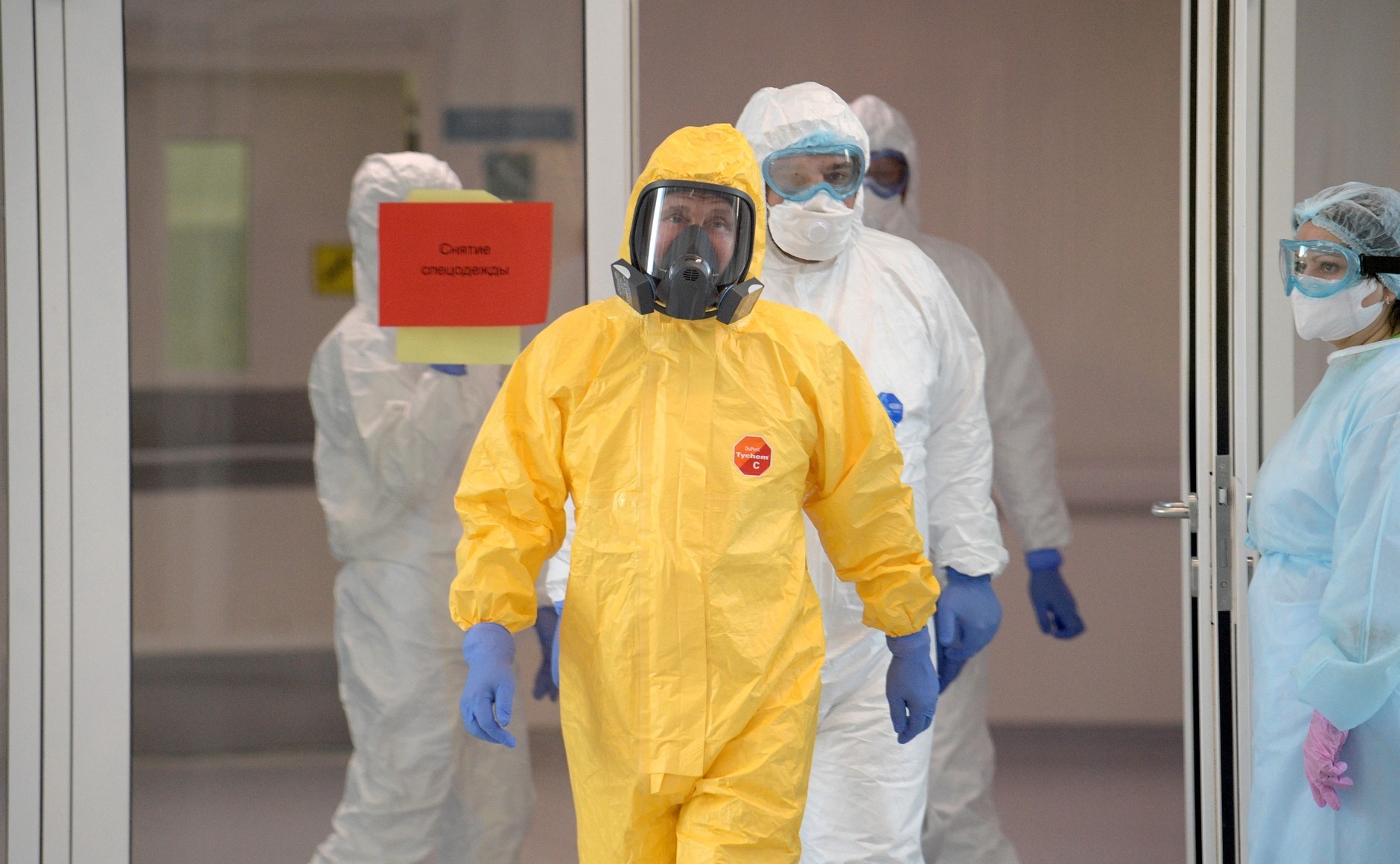
At the same time, Putin, being already 67 years old and belonging to a high-risk group, is making a “showcase” by visiting a hospital full of infected people. Is it time to worship the “immortal” and benevolent ruler who is closer to the citizens than many democratically elected politicians in the West?
Of course, there is no doubt that Putin went to the isolation hospital in Kommunarka near Moscow to show that he is in the frontline of the fight against the virus, that he is close to his countrymen, and that he is not afraid of the virus. I think that this and some other Putin’s actions are aimed at presenting the decisive, effective and brave Russian leader in contrast to the undecided, ineffective and even cowardly leaders of Western democracies.
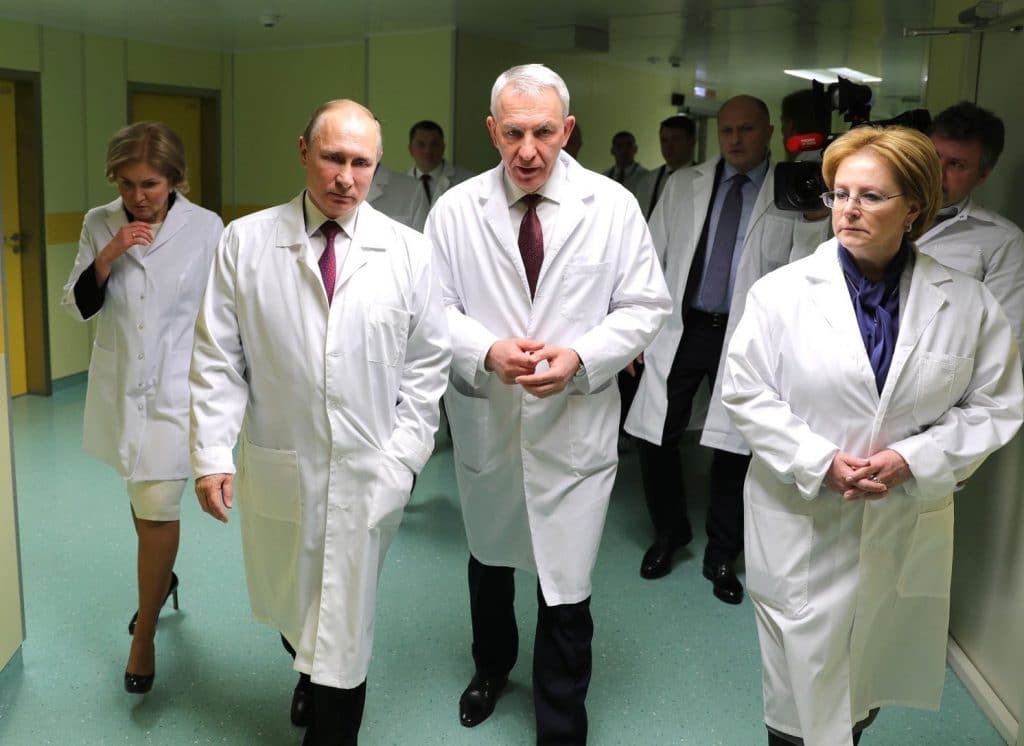
For several days now we have been witnessing another Russian disinformation offensive. The group monitoring disinformation activities of Russia, East StratCom Task Force, which is subordinate to the European External Action Service, has defined the objective of the current attacks: “panic and distrust of the societies towards the authorities and the European Union”. What tools are used for this purpose?
The usual. The ones that Russia used already during the US presidential campaign or the campaign before the Brexit vote. These are mainly internet trolls and bots spreading fake news. Of course, the main battlefield is social media, with Facebook ahead. An important role is played here by the Kremlin’s English-language media, such as RT or Sputnik, and foreign “useful idiots” from Russia. They are the ones who release different news, often partially or completely false, and the army of trolls and bots duplicate them. Moreover, Russian politicians (see Alexei Pushkov’s Twitter profile) or institutions (see the profile of the Russian embassy in South Africa) often take part in such campaigns.
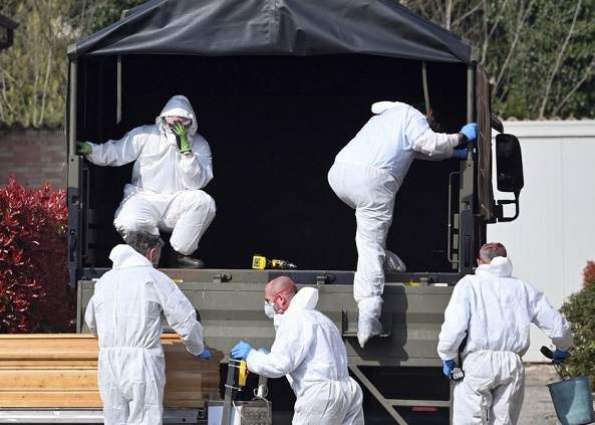
How should we interpret, in all this information noise produced by the Russians, the Russian army’s aid for the Italians and the simultaneous attack on Poland?
This alleged aid is a purely political and informational special operation of the Kremlin. Russian servicemen will not do much for the Italians, but Russia has made itself famous all over the world for free. This mission is a part of the Russian disinformation campaign showing that the pandemic has brought the West to its knees, that the Western community is falling apart, that Italians cannot count on help from Germans or Americans, but on Russians they can. It is all about the media message of the whole operation – it is supposed to bring profits for Russia in the future, such as the growth of pro-Russian sentiment among Italians and the political elite. It is the establishment of influence in the EU aimed at breaking up the Community and e.g. lifting EU sanctions on Russia. The attack on Poland in connection with the alleged – it soon turned out to be fake news – stopping the Russian air transport with aid to Italy has two aspects. Firstly, it is about fuelling the conflicts within the EU, which I mentioned. Secondly, it is a continuation of the anti-Polish campaign conducted by Moscow for several months.
Is it possible, in the current situation (as in the case of Italy), to imagine Russia filling the void left by its current allies and changing future alliances as well as remodelling the balance in Europe? Italians will certainly not forget that countries such as Germany or France did not send them help when they needed it most.
In my opinion, if Russia has such expectations, it will be disappointed. The real dimension of the military mission was quickly exposed by Italians themselves – showing that it was a PR game. In addition, however, with every day, the EU is working better and better in the fight against the coronavirus – although, of course, this is still not the expected level of performance. It is obvious that after the pandemic, the EU will no longer be the same. But not so much due to Russia’s actions, but the changes in thinking of many citizens and politicians in countries such as Italy or Spain. This will be a step towards a Europe of nations, although the federalists will probably say that the pandemic was a proof that the EU needs to be further centralised, then, there will be no such problems as the present one.
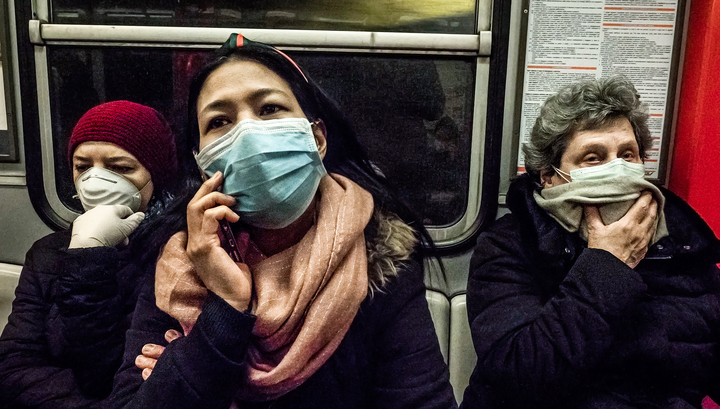
In other sources, you can find information that the coronavirus is an American/British/Belarusian biological weapon in the fight against (obviously) Russia. Does anyone really believe it? What other fake news is produced by the Russians?
If anyone believes, these are those who have long been convinced of similar conspiracy theories. The Russians focus their disinformation activities more on the alleged paralysis of the West, but they also do a lot to undermine the trust of Western democracies’ citizens in their own states. This is why constant rumours about closing cities, taking the army to the streets and so on are appearing.
And in all this, China stands next to Russia. It is a coincidence, or is it another manifestation of the two countries choosing a common front? It was Beijing that released the first “trial balloon” in the form of an article on globaltimes.cn about the American origin of SARS-CoV-2.
Although there are similarities in the actions of both countries (but today it is China that borrows various methods of disinformation from Russia) and it is known that it is in the interest of both countries to weaken the USA and increase influence in Europe, I would not call it a common front. Moreover, the actions taken by the Russian authorities since the end of January dissatisfied China – it is not only about closing the border, but different actions against Chinese citizens in Russia, in Beijing perceived as discrimination based on origin. And it should be remembered that the pandemic had an impact on Russian-Chinese economic cooperation. Of course, when it comes to disinformation, Russia and China act similarly against the West – but it should be remembered that each of these players has its own goals.
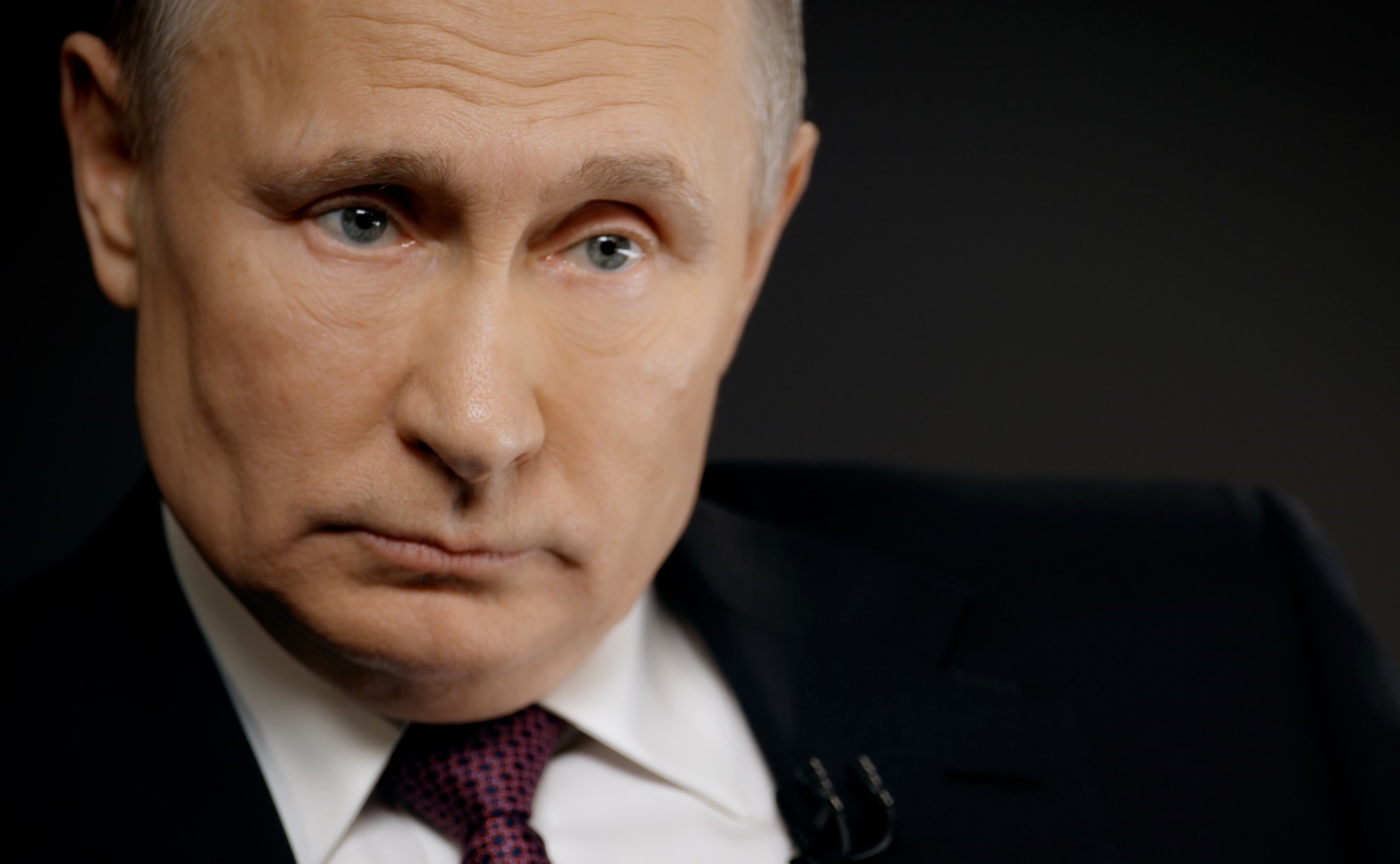
What do you think will be the continuation of the current propaganda and disinformation attacks? It seems we have not experienced such a fierce campaign for many years. Will it escalate? What are the options of the EU and also of individual countries to respond?
If escalation, it will come from China rather than Russia. Although Moscow is carrying out its traditional actions to weaken the morale of the West on the occasion of the pandemic, it is becoming a victim of the virus from China itself day by day. In my opinion, however, in this particular area, the Russians will be quite restrained – all the more as various disinformation and propaganda activities of Moscow are being quite quickly identified and unmasked in the West. The Russians will focus on highlighting the EU’s weaknesses and the fact that each country can only count on itself. They will want to use this to strengthen their influence in specific countries. The EU can only react to this by exposing the falsehood of the Russian message, and, above all, by its own effective fight against the coronavirus – this alone will knock the weapon out of Russia’s hands. The same applies to individual countries, which should be cautious about Russian aid offers because Russia never helps selflessly. Anyway, in my opinion, Russia will soon have to deal with the epidemic in its own backyard.
Grzegorz Kuczyński graduated in history at the University of Bialystok and specialized Eastern studies at the University of Warsaw. He is an expert on eastern affairs. He worked as a journalist and analyst for many years. He is the author of many books and publications on the inside scoop of Russian politics.
Interview by Jarosław Walkowicz – The Warsaw Institute Review
This interview belongs to the series “Coronavirus on world power propaganda’s service” concerning the SARS-CoV-2 pandemic narration in international politics
All texts published by the Warsaw Institute Foundation may be disseminated on the condition that their origin is credited. Images may not be used without permission.


